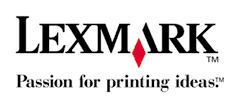Toner News Mobile › Forums › Latest Industry News › The Intellectual Property Owners Association Support Lexmark Corp
- This topic has 0 replies, 1 voice, and was last updated 8 years, 8 months ago by
news.
-
AuthorPosts
-
newsKeymasterhttp://www.law360.com/articles/693201/foreign-sales-don-t-exhaust-patents-groups-tell-fed-circ
The Intellectual Property Owners Association Support Lexmark Corp
Foreign Sales Don't Exhaust Patents, Groups Tell Fed. Circ.
By Matthew BultmanLaw360, New York (August 21, 2015, 3:42 PM ET) — Intellectual property owners and tech companies have rallied behind Lexmark International Inc. in a closely watched case at the Federal Circuit, telling the court that overseas sales of patented products should not exhaust domestic patent rights.
The Intellectual Property Owners Association on Wednesday joined several others in filing amicus briefs supporting Lexmark, which is asking the full appellate court to affirm an Ohio federal judge’s ruling of infringement on printer cartridges first sold abroad.
The IPOA, which represents more than 12,000 intellectual property holders, told the appellate judges that while the U.S. Supreme Court ruled in 2013 that foreign sales exhaust copyrights, that holding does not apply to patent law.
Patent rights are limited territorially by the nationality of the agency that issues those rights. The IPOA said it would be “extraordinary” to say that sales outside the U.S. could exhaust patent rights within the country.
“The Kirtsaeng opinion neither compels nor suggests that this court apply it to patent law and disrupt the long-settled expectation that the sale of products in a foreign country, whether by the patent owner or someone else and whether or not the sale is made pursuant to a foreign counterpart of a United States patent, does not exhaust any United States patent rights,” the association wrote.
Companies including Qualcomm Inc. and Dolby Laboratories Inc., as well as trade groups like CropLife International and the Biotechnology Industry Organization, also voiced their support for Lexmark in separate briefs made publicly available on Friday.
The filings come about a week after Lexmark filed its first brief in the en banc phase of the case. Lexmark’s underlying suit accused Impression Products Inc., which refurbishes, refills and resells Lexmark cartridges, of patent infringement.
The full Federal Circuit decided in April to review the case to address whether two of the appellate court's precedents on patent exhaustion remain good law in light of recent Supreme Court rulings.
The first involves the Federal Circuit’s previous holding that only sales within the U.S. exhaust patent rights. Impression Products contends that has been called into question by the Supreme Court’s 2013 ruling in Kirtsaeng that said foreign sales exhaust rights under copyright law.
The second question is whether patent owners can impose restrictions on the use of patented items after they are sold in order to keep the sale from exhausting their rights. The Federal Circuit's 1992 Mallinckrodt decision said such restrictions are enforceable, but the Supreme Court said in 2008 that authorized sales exhaust patent rights.
Urging the appeals court to reaffirm its long-standing precedents, Biotechnology International and CropLife said the Federal Circuit has struck a delicate balance between a patent owner’s ability to protect its patent and the public interest in access to that invention.
“There is no mandate — or even a suggestion — from the Supreme Court to revisit either exhaustion doctrine,” the trade groups wrote.
Dolby took a similar stance, arguing the holding in Kirtsaeng regarding copyrighted works isn’t analogous to patent law.
Turning toward the Mallinckrodt decision, the entertainment technology company said patent owners and licensees are free to define the scope of their licenses. Rights that were never granted are not authorized and cannot be subject to exhaustion, it wrote.
“Hence, a lawful restriction on the scope of a license or limited authorization in a sale or license grant should be upheld,” Dolby said. “This court’s decision in [Mallinckrodt] hews to these principles, and the court should not overrule this long-standing precedent.”
IPOA is represented by Robert P. Taylor of RPT Legal Strategies PC. Dolby is represented by Garrard R. Beeney and Adam R. Brebner of Sullivan & Cromwell LLP. Biotech and CropLife are represented by Barbara A. Fiacco and Sarah S. Burg of Foley Hoag LLP. Qualcomm is represented by David J. Kappos and Roger G. Brooks of Cravath Swaine & Moore LLP.
Lexmark is represented by Constantine L. Trela Jr., Robert N. Hochman, Benjamin Beaton and Joshua J. Fougere of Sidley Austin LLP, Timothy C. Meece, V. Bryan Medlock, Jason S. Shull and Audra C. Eidem Heinze of Banner & Witcoff Ltd., and Steven B. Loy of Stoll Keenon Ogden PLLC.
Impression is represented by Edward F. O'Connor of Avyno Law PC.
The case is Lexmark International, Inc. v. Ink Impression Products Inc., case number 14-1619 in the U.S. Court of Appeals for the Federal Circuit.
– Additional reporting by Jacob Fischler. Editing by Emily Kokoll.
-
AuthorAugust 31, 2015 at 10:33 AM
- You must be logged in to reply to this topic.


